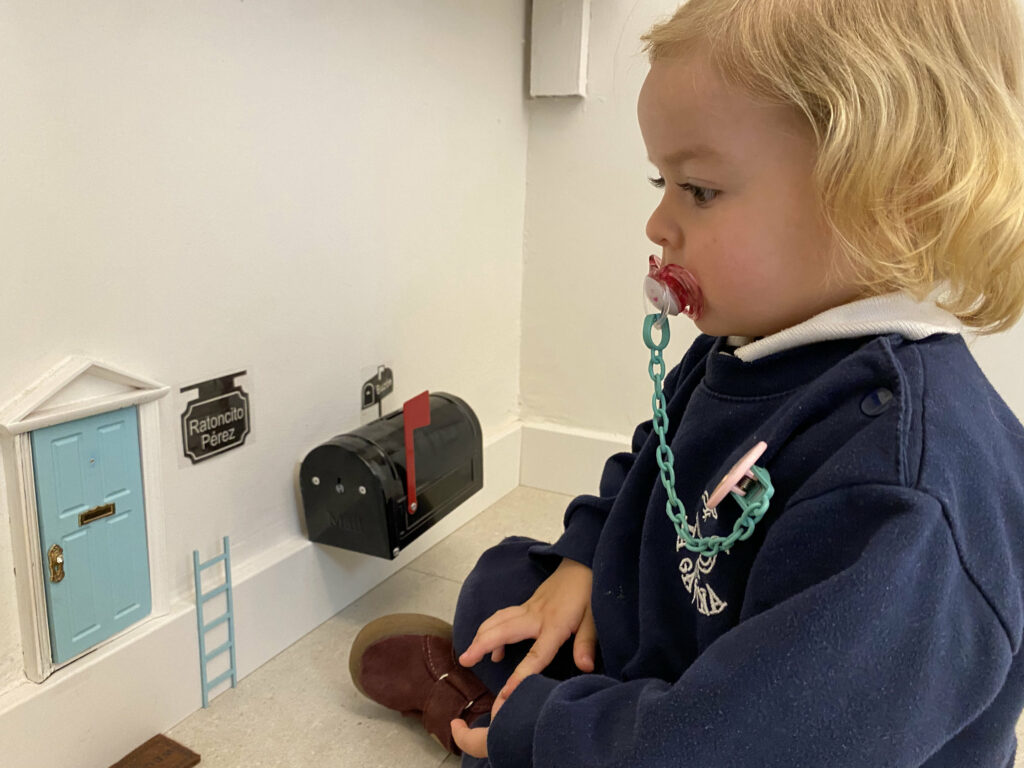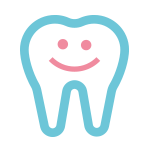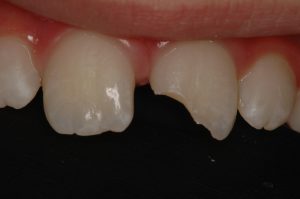Pediatric Dentistry
At Murtra, we want to take care of the little ones in the house with a comprehensive approach, where the pediatric dentist and orthodontist evaluate each child's growth, habits, diet, and development, and, if their masticatory system requires it, help guide or correct dysfunctions in the simplest way, always keeping in mind preventive and restorative dentistry.
Why don’t we work with insurance companies?
Today, insurance companies only cover treatments but not prevention, and therefore, our comprehensive preventive approach does not fit their offerings. But… don’t you think it’s cheaper to invest in an annual preventive visit than in an expensive and bothersome filling?
That is why our first visit costs €40, and annual check-ups €25.
Call us to schedule an appointment at 932040893 or 618369206.
Why are baby teeth so important?
Baby teeth are important for your child because they contribute to three fundamental pillars: proper chewing and digestion, correct speech and language development, and last but not least, the ability to smile and be happy as a tool for self-esteem.
From a comprehensive preventive approach, healthy baby teeth help us control the normal bone and muscle development of the maxilla and jaw, maintain space for permanent teeth, and guide them as they emerge so they are positioned correctly.
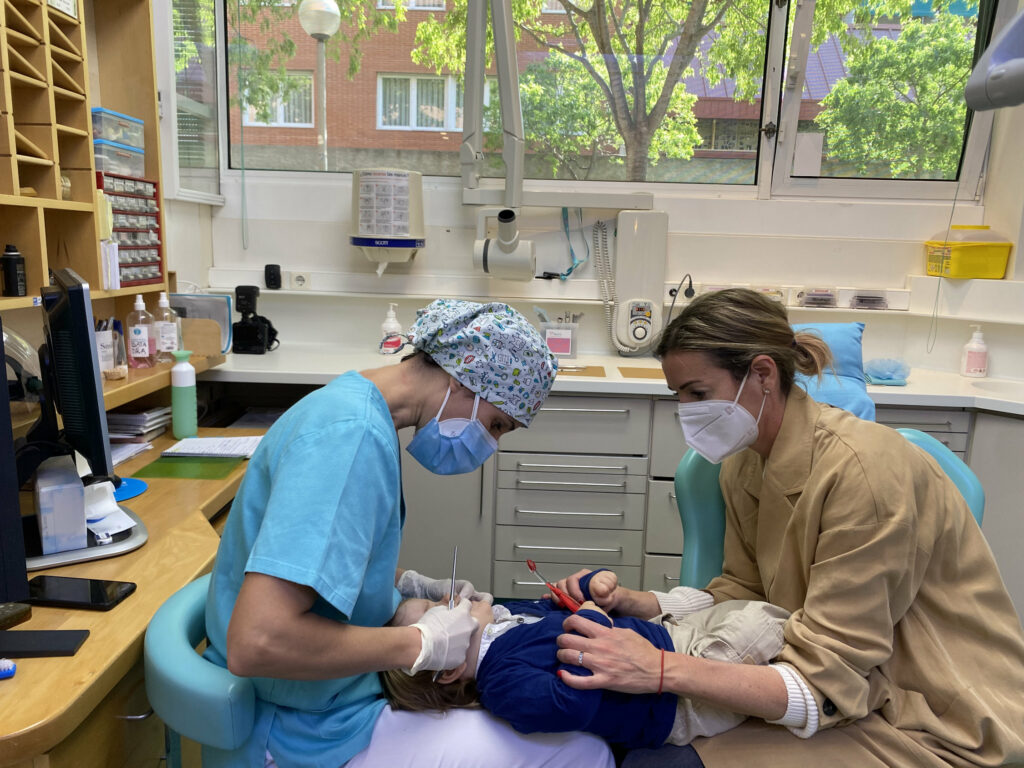
When should the first visit to the pediatric dentist or pediatric dentistry specialist be?
THE MOST RECOMMENDED TIME (at the latest) IS BY ONE YEAR OF AGE; the moment when the first baby teeth have already emerged and parents should learn about healthy eating habits, as well as be alert to indicators that may cause malocclusions (e.g., thumb sucking, prolonged use of bottle and/or pacifier, disproportionate jaws or teeth, or biting cheeks or palate).
What to expect during their first visit
The first visit to the dentist should be pleasant and positive, and for this, parental collaboration starting at home is vital. It is important for adults to avoid words like “needle,” “drill,” “pull,” or “pain” in front of children. Synonyms that convey the same message but sound pleasant should be used, thus preventing the well-known anxiety or fear of the dentist.
Additionally, we emphasize that ideally, they should attend their first visit without any problems or pain, as the goal of the first visit is to make the child feel comfortable and earn their trust.
Once at the clinic, we always invite parents to enter and stay in the treatment room during the initial examination, but in future visits, we will suggest allowing our staff to accompany the child.
Dr. Diez will talk with them, giving them time to express themselves and tell us about their cleaning habits, snacks, pacifier, thumb… always encouraging the cheerful participation of the little ones, while parents are present so that later at home they know how to promote their children’s daily oral care (starting routines from birth), the appropriate diet to prevent cavities (choosing the healthiest snacks), understanding the importance of attending personalized check-ups, toothpastes, fluoride treatments…
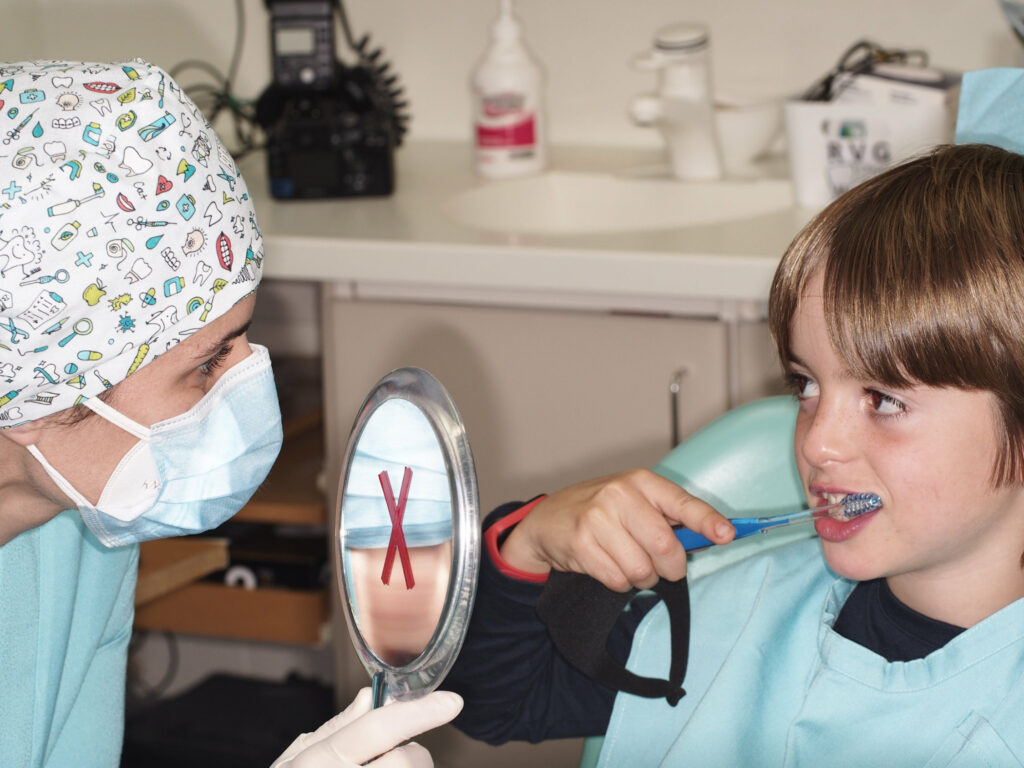
It is time to examine their teeth, gums, frenula, tonsils, and everything necessary to understand their development and detect harmful habits such as: atypical swallowing, thumb sucking, jaw deviations, mouth breathing… with the aim of correcting them early with the help of our ORTHODONTIST. For this reason, we emphasize the importance of annual joint check-ups; visiting our specialists each year will help address any problems that may arise.
X-rays in children?
Whenever necessary, diagnostic X-rays should be taken to detect dental eruption patterns, agenesis, cavities, impacted canines, and to evaluate bone positions for orthodontic planning… but the need for diagnosis does not conflict with safety. That is why at Murtra we only use digital X-rays (which emit radiation similar to what we absorb from the sun), comply with all ALARA (As Low As Reasonably Achievable) recommendations, and always use lead protectors.
And if necessary, we also have the most advanced 3D imaging technology.
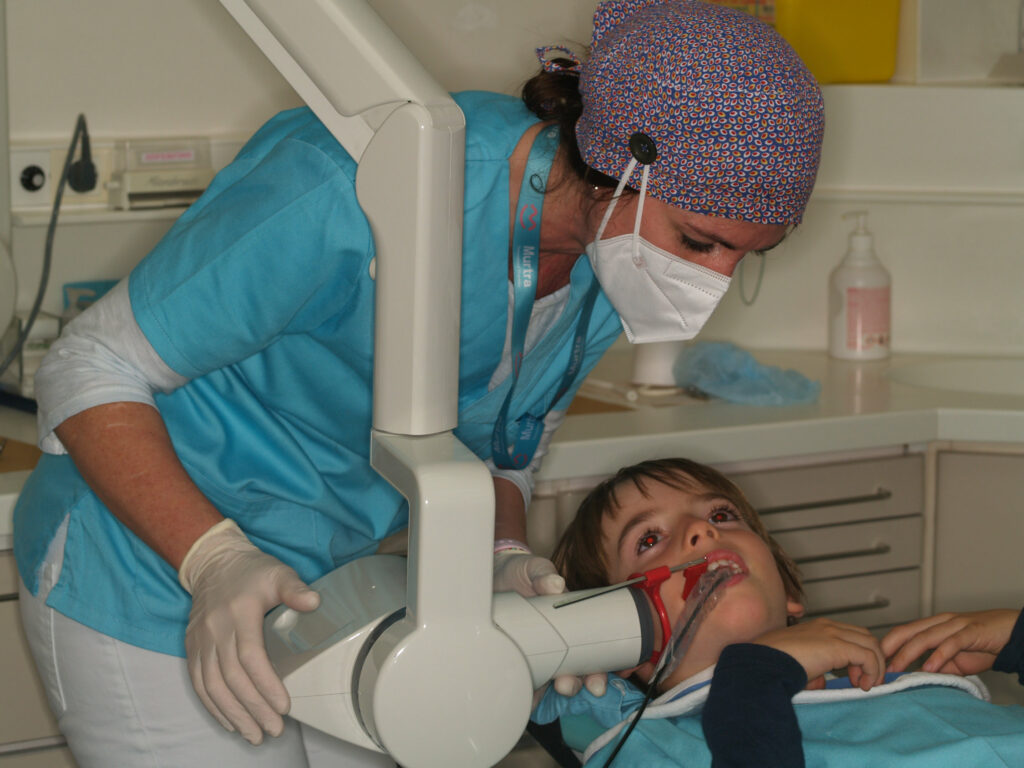
When to see the pediatric dentist?
CLINICAL CASES
A broken shovel
